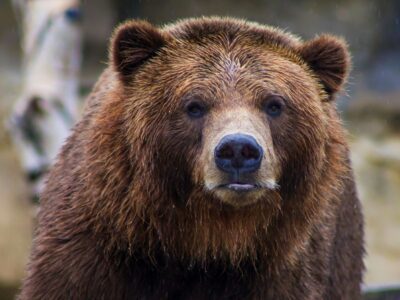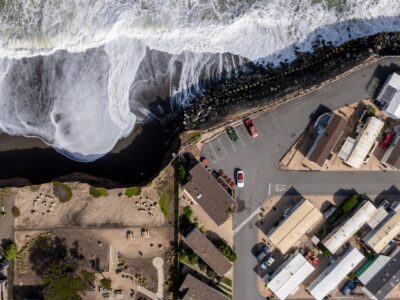Going, Going, Gone
Despite it’s depressing subject, Elizabeth Kolbert’s The Sixth Extinction is a great read. She travels around the world, from a “hotel” for endangered frogs in Panama to an outdoor biodiversity experiment in the Peruvian rainforest to an endangered rhino’s rectal exam in Cincinnati. Yet, there’s no denying that the topic is a downer. The title implies that we are in the midst of a wave extinctions akin to the five great extinctions in the geological record such as the one that wiped out the dinosaurs.
As the title indicates, we are in the throes of one of the major extinction events in the history of the planet. Kolbert carefully charts the reasons: invasive species (including the pathogens killing frogs and bats around the world), ocean acidification, habitat destruction, and climate change. Yet she is careful to avoid the most alarmist projections and to discuss some of the ongoing scientific uncertainties. Still, taking into account all of the qualifications, it seems clear that our species is changing the world faster than many species will be able to adapt.
Perhaps the most interest aspect of the book is Kolbert’s diagnosis. She does not focus on greed or short-sightedness as root causes. She acknowledges the sometimes heroic efforts of individuals to protect biodiversity. Though she sees the tragedy of the commons at work in some settings, she views the root cause as being the nature of our species: “our restlessness, our creativity, our ability to cooperate to solve problems and complete complicated tasks.” After all, in some sense we are the most successful invasive species in the history of the world, able to cross wide oceans and survive in nearly any climate.
Kolbert believes that, “as soon as humans started using signs and symbols to represent the natural world,” they developed the ability to change the world faster than other species could adapt. “If you want to think about why humans are so dangerous to other species, you can picture a poacher in Africa carrying an AK-47 or a logger in the Amazon gripping an ax, or better still, you can picture yourself holding a book on your lap.” Or, I suppose she would add, you could picture yourself reading a blog post.
Kolbert is probably right that a lot of our species’ impact on the world has been inevitable. It also seems clear that a major decrease in biodiversity is locked into the system, which we have perturbed too much and too quickly for many existing species. But much does remain within our control. With the use of our “restlessness our creativity, our ability to cooperate to solve problems and complete complicated tasks,” we can do a great deal to preserve habitat, to control invasive species, and to limit climate change and ocean acidification. Who knows, we might even save ourselves in the process.
Reader Comments
3 Replies to “Going, Going, Gone”
Comments are closed.







From your post it appears the Kolbert may not have acknowledged the diversity of our species and the relative levels of culpability of individual actors. There are those that recognize the damage our species has caused and continues to cause and who make personal sacrifices to help stem the tide. There are those that willfully ignore or reject any kind of environmental ethos, either out of ignorance or greed. And there are also those that capitalize on resource extraction and destruction, who do the most to destroy habitats and drive animals to extinction. At this end of the spectrum are the poachers in Africa, Japanese whale “research” ships, hydraulic miners of the 18th century (and oil shale miners today), logging companies that clear-cut, energy companies heavily invested in coal, etc. When addressing an issue as sobering as a sixth wave of extinction, it’s important to give credit (and blame) where it’s due.
Dan we’ve been trying to prevent “Going, Going, Gone” since 1970 or so, and now the IPCC has given us 15 years or so to take advantage of “restlessness(of) our creativity, our ability to cooperate to solve problems and complete complicated tasks.”
Could you please give us a list of actions we are taking to “save ourselves” today?
I wish to rephrase my above question on actions:
Are there periodic climate change progress reports, for public information, to inform and motivate us on social, political, economic and environmental actions we must take to perpetuate an acceptable long-term quality of life for our newest and future generations?